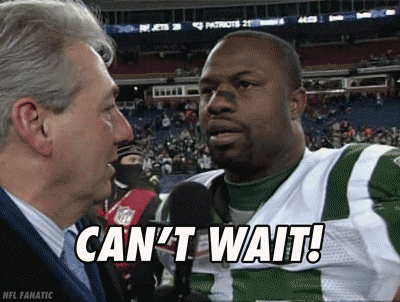You are using an out of date browser. It may not display this or other websites correctly.
You should upgrade or use an alternative browser.
You should upgrade or use an alternative browser.
Strength In Numbers: Official Golden State Warriors 2014-15 Season Thread
- Thread starter G.O.A.T Squad Spokesman
- Start date
More options
Who Replied?Playoffs is coming my nikkas if Splitter healthy the league can forget it and Marco quit with the fukking ball fakes...I don't care about..Mills Joseph D is on another level right now... we got enough heads who can make shots...Green CoJo and and the Mute...


G.O.A.T Squad Spokesman
Logic Is Absent Wherever Hate Is Present
64th win of the season and Steph broke his own record.....Today was a good day.
My neck and my back
All Star
19 pts 7/7 fg 2/2 3pt 3/3 ft in the 4th 

G.O.A.T Squad Spokesman
Logic Is Absent Wherever Hate Is Present
G.O.A.T Squad Spokesman
Logic Is Absent Wherever Hate Is Present
65-15


G.O.A.T Squad Spokesman
Logic Is Absent Wherever Hate Is Present
ESPN Insider said:For months, the race for the NBA's most valuable player award has been misreported.
Golden State Warriors guard Stephen Curry has been anointed the favorite to win MVP based on being the proverbial "best player on the best team." That's an accurate description, certainly, but also one that sells Curry short.
Best player on the best team makes it sound like the Warriors' success is driving Curry's MVP candidacy. In truth, it's the other way around. Curry has been the best player in the NBA this season. That's why Golden State has the NBA's best record, and that -- not the record -- is why Curry deserves MVP.
Historic scoring for a guard
In the past, I've used a statistic called adjusted true shooting percentage (aTS) to measure how well NBA players score, combining their usage rate (the percentage of the team's plays they finish with a shot attempt, trip to the free throw line or turnovers) and their true shooting percentage (TS, which measures how efficient players are with their shooting).
Last season, LeBron James and Kevin Durant had the best adjusted true shooting percentages since the ABA-NBA merger. Curry can't quite match those marks, but he's tops in the NBA this season and posting the 11th-best season in post-merger history.
PLAYER YEAR TEAM USAGE TS% ATS%
LeBron James 2013-14 MIA 0.312 0.649 0.704
Kevin Durant 2013-14 OKC 0.332 0.635 0.701
Artis Gilmore 1981-82 CHI 0.196 0.702 0.700
Charles Barkley 1987-88 PHI 0.267 0.665 0.699
Amar'e Stoudemire 2007-08 PHX 0.284 0.656 0.698
Kevin Durant 2012-13 OKC 0.300 0.647 0.696
Adrian Dantley 1983-84 UTA 0.282 0.652 0.693
LeBron James 2012-13 MIA 0.304 0.640 0.692
Artis Gilmore 1980-81 CHI 0.185 0.699 0.692
Karl Malone 1989-90 UTA 0.326 0.626 0.689
Stephen Curry 2014-15 GSW 0.292 0.638 0.684
You'll notice something those players have in common, besides Curry: they're all frontcourt players. Curry's adjusted true shooting percentage will be the best ever for a guard, surpassing Michael Jordan's .674 mark in 1989.
Not coincidentally, the top 10 all got to the free throw line on a regular basis -- at least 13 percent of the plays they finished with a shot attempt, pair of free throws or turnovers. Curry's plays end in a trip to the free throw line less than 9 percent of the time, meaning he's more reliant on making shots than anyone else who has been so efficient in NBA history.
James Harden, Curry's main competition for MVP, has carried a heavier load on offense (31.5 percent usage) with somewhat less efficiency (.605 TS percentage). As a result, his adjusted true shooting percentage of .663 ranks second in the league behind Curry. Nobody else has an adjusted true shooting percentage better than .630.
Noah Graham/NBAE/Getty Images
Curry's impact on the Warriors
Harden proponents are likely to start their case with the quality of his supporting cast. Harden's Houston Rockets rank in the top 10 in games, minutes and wins above replacement player (WARP) lost to injuries, according to my tracking. Their second-best player, center Dwight Howard, has been limited to just 40 games. By contrast, the Warriors could have the Coach of the Year (Steve Kerr) and the Defensive Player of the Year (Draymond Green), and backcourt-mate Klay Thompson joined Curry on the Western Conference All-Star team.
Yet remarkably, with Curry on the bench this season, Golden State has outscored opponents by just 0.6 points per 100 possessions per NBA.com/Stats. It's only with Curry on the court that the Warriors become a juggernaut, outscoring opponents by a league-best 16.5 points per 100 possessions. That net difference -- plus-15.9 points per 100 possessions -- is not only better than Harden (plus-8.4 net plus-minus), as NBA.com's John Schuhmann noted last week, it's the third largest in the league behind two stars on teams with woeful benches (Chris Paul of the L.A. Clippers and LeBron James of the Cleveland Cavaliers).
The comparison of the impact Curry and Harden have offensively, which SI.com's Ben Golliver graphed on Twitter last week using statistics from NBA.com/Stats, is fascinating. Without Harden, the Houston Rockets' offensive rating (93.8 points per 100 possessions) would be better than only the Philadelphia 76ers. When Harden plays, the Rockets' offense is tied for fourth in the league (107.5 offensive rating). Golden State's 100.1 offensive rating without Curry is slightly better -- it would rank 26th in the NBA. But Curry's presence boosts the Warriors' offensive rating to 113.8 points per 100 possessions -- four points better than the Clippers' league-leading 109.8 mark. The net difference of 13.7 points per 100 possessions is the same either way.
Looking just at on-court and off-court ratings slightly overstates Curry's value because it doesn't account for the quality of the other starters who play with him more frequently than they play with the second unit. But ESPN's real plus-minus (RPM) is designed for that task, and it has Curry (plus-8.9) rated ahead of Harden (plus-8.3) and atop the league.
In a real sense, then, Curry is carrying Golden State just as much as Harden has carried Houston. Rather than pushing his team from subpar to very good, he's taken the Warriors from OK to historically elite (they'll become the eighth NBA team ever to outscore opponents by double-figures per game if they're plus-3 points or better over their final two games).
That's why Curry is the MVP. He's been the best player, full stop, in the NBA this season.
dayun
Superstar
66-15 
The bench in the 4th

The bench in the 4th

G.O.A.T Squad Spokesman
Logic Is Absent Wherever Hate Is Present

66 wins
best team in the pacific division
best team in the west
best team in the league
#1 seed in the playoffs
my child, i've watched you grow up to be famous
and now i smile like a proud dad watchin his only son that made it



OaklandCertified
Town Business
I was at the mall Saturday and i saw so many people in Warrior gear it was crazy. Every where i turned it was a warrior fan. Men, Women, Babies.. All the stores moved all the Warriors gear to the front. Seeing all of the flags on cars, sports bars with random Dubs fans. this season has been amazing! It's a little bit more special for those of us who had to go through the dark years. I remember being teased at school because I loved the Warriors, when everyone else was Magic or Bulls fans. Numerous records being broken, #1 team in the NBA for probably 99% of the season, to possibly having the MVP. Im still in disbelief of what just happened. There is a whole new generation of Warriors fans being made right now. Can't wait for the playoffs!





